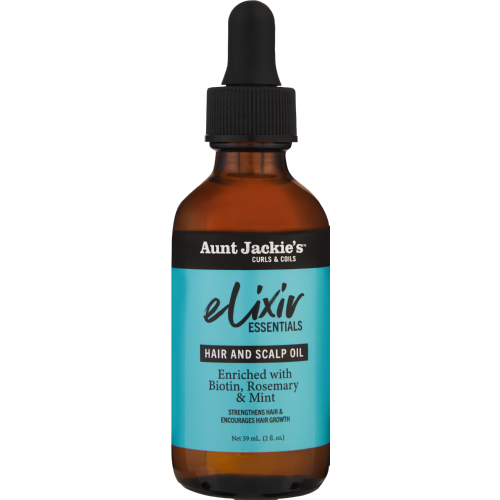Why hair loss happens
If you’ve noticed clumps of hair falling out recently, and are wondering why hair loss happens, here’s what could be going on inside your body and what you can do to treat it.
Hair shedding is something we all experience. In fact, shedding anything from 80 to 100 hairs in a single day is nothing to be alarmed about. But how do we know when we've passed the threshold from normal to problematic hair loss? Excessive hair shedding, where you start to see significantly more hair coming out than usual, is often a combination of factors. It's especially common as we hit mid-life.
Do keep in mind that if you are worried about excessive hair loss, consult a medical professional or a trichologist as medical issues or underlying diseases may be playing a part in any hair loss you're experiencing, and they will be able to diagnose or treat the condition or cause of the hair loss best.
Hair loss cause 1: Stress
Hair loss can be caused by an imbalance of many kinds of hormone issues, and cortisol – the stress hormone – is one of the hormones often associated with hair loss. When you're stressed, cortisol levels shoot up, and your hair growth cycle goes haywire. Cortisol causes your hair to shorten its growth phase and get into the resting phase, where hair loss occurs.
Hair loss cause 2: Diet and nutrition
Poor nutrition or severely restrictive fad diets can lead to all kinds of nutrient deficiencies, which in turn can result in hair loss. A balanced diet rich in protein (think meat, fish, beans, and soy) provides the body with keratin, a fibrous protein that builds hair and nails. Omega-3 fats (found in fish, walnuts, and flaxseed) and iron (in red meat, full-fat dairy, eggs, and lentils) is vital to nourish healthy hair and support hair growth.
Hair loss cause 3: Vitamin deficiencies
Vitamins and minerals such as B vitamins, vitamin D, vitamin E, zinc, biotin, and iron are essential for healthy hair growth and may help in preventing hair shedding and thinning. From nourishing the hair follicles to boosting keratin production, ensuring an adequate intake of these vitamins through diet or supplementation is crucial for maintaining optimal hair health.
Hair loss cause 4: Hormonal changes
Postpartum, perimenopause, menopause, polycystic ovaries, and going on or off birth control are just some of the conditions that can cause an imbalance of hormones such as oestrogens (helps keep hair in its growth phase) and androgens (can shorten the hair growth cycle). Depending on the cause of the imbalance, a medical professional can suggest a variety of methods including hormone therapy, medications, and lifestyle adjustments that can help restore hormonal balance.
Hair loss cause 5: Unhealthy scalp
Scalp buildup can cause hair loss if left untreated as the dead skin, oil, and sweat can clog your hair follicles. Detoxing the scalp with a clarifying shampoo or scalp scrub is key to getting rid of this dirt, which in turn helps stimulate hair follicles and clears the scalp of dandruff, acne, and scabbing.
Hair loss cause 6: Heat and chemical treatments
Daily heat styling, tight hairstyles, as well as harsh hair treatments such as bleaching and dyeing it too frequently, can cause hair to be more brittle, damaged, and prone to breakage.
Ways to combat hair loss
- Switching up your hair care routine can make a big difference to hair health. Most experts agree that heated styling tools are a no-no for fragile hair, so cut down your use or cut them out altogether.
- Avoid products with silicones as these can also clog hair follicles, inhibiting the appearance of optimal hair growth, trapping dirt and debris on the scalp.
- Incorporate hair oil as it can penetrate the deepest layers of your scalp to reach your hair follicles, increasing blood circulation and, with regular use, encouraging hair growth.
- Using heat protectants before styling, getting frequent trims, and giving yourself a few days off between heat styling will work together to have a major impact in preventing hair loss.
- Addressing the causes of your stress is imperative. Often when we’re stressed, we don’t eat well, so looking at diet and supplements as well as daily exercising can help manage your stress.
Products featured in this article
-
Clicks
Expert Hair Skin & Nails Capsules 30 Capsules
R 155.00 -
Ethnogenics
Hair Growth Supplement 60 capsules
R 320.00 -
Native Child
Hair Growth Castor Oil 200ml
R 89.99 -
Aunt Jackie's
Elixir Rosemary & Mint 59ml
R 239.00 -
The Body Shop
Rainforest Coconut Hair Oil 200ml
R 235.00 -
Umberto Giannini
Heat Protection Spray 175ml
R 160.00 -
Umberto Giannini
Grow Scrub Scalp Scrub 250g
R 180.00



